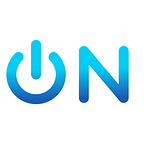Enabling Effective and Inclusive Tech Policy in Africa: Why We Invested in CIPESA
By Thea Anderson, Director, Omidyar Network
Across East and Southern Africa, the civic space is fractured and shrinking. A driving factor is new legislative restrictions targeting civic activism and challenging citizens’ collective powers.
At the same time, African governments, financial services providers, and tech companies are quickly rolling out new ID programs on digital platforms to take advantage of the continent’s new trade agreements and digital transformation initiatives. Civil society organizations and policy advocates are critical to ensuring citizens’ and residents’ needs and experiences are meaningfully considered in these programs; that the appropriate safeguards and human rights respecting laws are in place and enforced; and that all technology reflects the principles of Good ID.
Good ID is a framework of best practices that help decision makers design and manage ID programs so that individuals experience equity, utility, and security. Good ID treats ID as a protected asset, controlled by each individual and safeguarded by law. In addition to privacy and security, Good ID elevates and frames the importance of inclusion, transparency, and accountability. The approach also promotes ways for individuals to play a major role in their own identity management. The result is an ID that is worthy of the public’s trust.
The Good ID approach requires the involvement of networked civil society actors, independent media, and an informed and engaged public. To hold ID programs accountable for including, benefiting, and protecting everyone, we have invested in the Collaboration on International ICT Policy for East and Southern Africa (CIPESA). Based in Kampala, Uganda, CIPESA increases the capacity of African stakeholders to influence tech policy through:
- advocacy and awareness to increase free speech, ensure privacy and security for personal data, and to advance participation, transparency, and accountability in data governance;
- dialogue and engagement, spurring multi-stakeholder conversations to protect and promote digital rights throughout Africa;
- knowledge and skills development in policy engagement, digital security, and human rights monitoring; and
- contributing to the availability of information on the ICT legal, regulatory, and practice landscape through research and documentation.
CIPESA produces the annual State of Internet Freedom in Africa report; organizes the annual Forum on Internet Freedom in Africa (FIFAfrica); and convenes the regional ICT4Democracy in East Africa network to demand transparent and accountable data governance.
With a new grant, CIPESA will strengthen platforms for civic engagement in ID program decisions, introduce new tools and approaches to effectively advocate to policymakers, and surface and network new and emerging civil sector partners, including those operating in constrained environments. Omidyar Network is proud to be able to support three of CIPESA’s impact areas:
1. Scale the Africa Digital Rights Fund. In partnership with Ford Foundation, the Swedish International Development Cooperation Agency, and German Corporation for International Cooperation, we have further enabled CIPESA to launch a second call for proposals with a higher maximum grant amount and increased support for new actors operating in constrained or authoritarian environments. CIPESA will also encourage applications by youth-led organizations, collaborations by citizen journalists, requests for multi-country proposals and initiatives focused on marginalized communities. This will further build on thematic areas such as progressive data protection regimes, legal support, the mitigation of emerging tech threats like cybersecurity attacks and surveillance, and rapid responses to urgent digital rights issues.
2. Strengthen and align a network of civil society advocates on critical issues related to ID programs and personal data, in at least three countries. This includes a partnership with digital storytellers Data4Change, which assists civil society organizations to tell stories and utilize data to influence policymakers on critical issues related to emerging tech, surveillance, and exclusion. Data4Change will support the African Digital Rights Fund grantees in data and advocacy skills to take a stand on issues around data privacy and data protection.
3. Continue to convene the Forum on Internet Freedom in Africa (FIFAfrica), an important event which took place earlier this year in Addis Ababa, Ethiopia in collaboration with the Ethiopian Ministry of Innovation and Technology. The diverse set of themes covered included the role of digital voices in African feminist movements, regulatory options for biometrics, and censorship in Sudan.
In addition to the activities detailed above, we invested as part of a wider learning agenda and look forward to exploring several key questions with CIPESA, including:
- What are the incentives and needs for civil society actors to form coalitions to advocate effectively for specific ID-related policies?
- Will this type of investment bring impact in more constrained environments that may have weak civil society ecosystems or human rights records?
- Will tools such as digital storytelling and data visualization be impactful with policymakers?
- Will emerging advocates have sufficient influence on policymakers to adopt a Good ID approach to their policy, tech, and practical decisions?
CIPESA and the emerging network of civil society actors and activists will provide insights and on the progress over the next 16 months.
